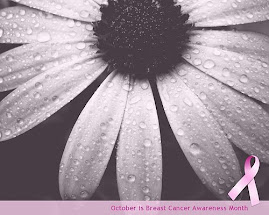Exploration 1
As I began my observations of the breast cancer survivor community, one thing that definitely stood out to me was that no matter how awful and dire the situations were, the women involved seemed unbelievably optimistic. While I was chatting with one of the women about her journey through diagnosis, treatment and life as a cancer patient and she told me some interesting details. Fifteen months ago, her doctor gave her three months to live because of the aggressive nature of her breast cancer. This woman is living day to day knowing that medically, she should not be alive. Even through all of that, she still focused on the good things in her life- her family, friends and the support she finds through her church congregation. She wasn’t dwelling on the facts of her life possibly ending imminently. The only amount of negativity that she let me see was when she told me about her upcoming appointment with her oncology doctor. She said that the nurse had called her a few weeks ago and told her that her cancer appeared to be more aggressive but she had to wait until March 4th before seeing her doctor to discover what exactly “increased aggressiveness” actually means.
I am really curious as to whether or not these women are really as optimistic as they seem? Or is that something they feel they must uphold so they don’t lose control? I would also like to know if there are statistics on how breast cancer was found initially- by mammogram or self breast exam? Also, if they are told they only have a certain amount of time to live, what do they do with their life? Do they “live like they were dying” or focus solely on the health of their bodies, in order to add extra weeks, months or years onto their life? I am also curious about the incidence of depression alongside the diagnosis of breast cancer. Also when a woman is diagnosed, how likely is it that she will receive disability?
The details that pique my interest about this group are the dynamics and support they have for one and another. It seems that they are able to draw strength and knowledge about their disease with the other women in their group. No matter what stage of the diagnosis the women are at, the support is unwavering.
Something that I would still like to learn about this group is how they feel emotionally throughout their diagnosis, treatment and after. How does a woman cope with losing one or both of her breasts? Does she feel like less of a woman? After being diagnosed is the woman always waiting for the other “shoe to drop”- so to speak? Another thing that I would like to know is what percent of breast cancer is not detected by annual mammograms? What can be done to improve the detection process? What about women who don’t have insurance to cover preventative health care, like mammograms? How big of a financial burden is placed on the family and what, if any, social services are out there to help in a time of need?
One thing that was a resounding theme throughout my initial observation was how the women felt that the medical technology has grown in leaps and bounds over the last few years. Breast cancer was once a death sentence and now it is viewed as far more curable. I think that knowing this is what helps so many women maintain strength and courage through their battle.
These wives, mothers, daughters, sisters, aunts and friends are facing such adversity and continue to rise above it, gathering together and fighting to find a cure. The camaraderie is unparalleled to any other disease. These women, otherwise complete strangers are drawn together, open up and share the most intimate details about their lives. This is absolutely fascinating to me. I look forward to learning more and the intricate dynamics of their close knit group.
Subscribe to:
Post Comments (Atom)


Wow, Kyley! You are coming up with some really rich questions here, and I think you're already getting at the heart of this community--the strength that these women gain from working together. I appreciate your thoughtful exploration here--keep it up!
ReplyDelete